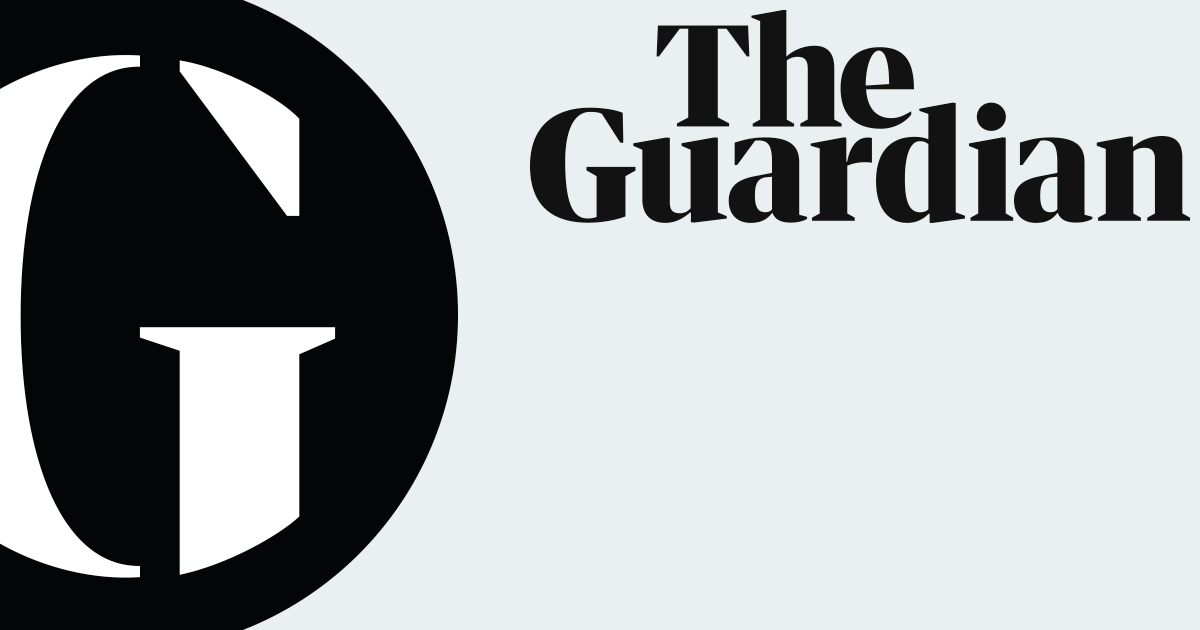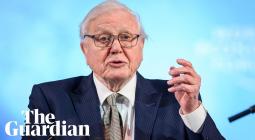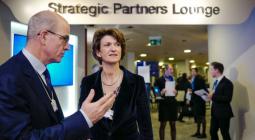David Attenborough and Prince William take world leaders to task on environment
Davos 2019: broadcaster tells prince that humans have power to exterminate whole ecosystems ‘without even noticing’
Sir David Attenborough has warned that humankind has the power to exterminate whole ecosystems “without even noticing”, and urged world leaders to treat the natural world with respect, during an interview with Prince William in Davos.
Prince William also took world leaders to task at the World Economic Forum in Switzerland, asking Attenborough why those in key positions have “taken so long” to address climate change.
Attenborough said the connection between the natural world and urban societies had been “remote and widening” since the industrial revolution, meaning humans do not realise the effect their actions have on the global ecosystem. The 92-year-old broadcaster added that it was “difficult to overstate” the urgency of the environmental crisis.
“We’re now so numerous, so powerful, so all-pervasive, the mechanisms we have for destruction are so wholesale and so frightening, that we can actually exterminate whole ecosystems without even noticing it. We have to now be really aware of the dangers of what we’re doing, and we already know that of course the plastic problem in the seas is wreaking appalling damage upon marine life, the extent of which we don’t yet fully know.”
He stressed that the natural world “is not just a matter of beauty, interest and wonder” but a coherent ecosystem on which we depend for “every breath we take, every mouthful of food we take.” A healthy planet, Attenborough added, is an essential part of human life.
“If we don’t recognise the kind of connections I’ve been describing, then the whole planet comes in hazard, and we are destroying the natural world and with it ourselves.”
William pressed Attenborough for a key message for the politicians and business leaders gathered in Davos this week.
“Care for the natural world. Not only care for the natural world but treat it with a degree of respect and reverence,” Attenborough said, adding that there was a worrying tendency to waste resources.
“The thing that I really care for in our ordinary daily lives is not to waste the riches of the natural world on which we depend. And it’s not just energy ,which of course is very important, but it’s also dealing with the natural world with a degree of respect. Not to throw away food, not to throw away power – just care for the natural world of which you’re an essential part.”
The Duke of Cambridge started and ended the session by congratulating Attenborough for winning the Crystal award, which recognises individuals who have helped make the world a better place, at the World Economic Forum on Monday night. William added it was a “personal treat” to be asking Attenborough questions, and quipped that it was a good change of pace from being the subject of interviews himself.
Asking why global leaders have taken so long to react to climate change, William said: ““Why do you think world leaders and those in key positions of leadership; why do think they’ve taken so long … there have been quite a few faltering steps to act on environmental challenges?”
Comparisons were also drawn between the broadcaster’s burgeoning BBC career in the 1950s, compared with his latest project that sees him team up with Netflix and the World Wide Fund for Nature (WWF) for an upcoming series called “Our Planet” to be released on the online TV streaming site.
Attenborough said his early work in the mid-1950s involved himself, one camera and one cameraman, and it was relatively “easy” to impress Britons simply by televising an armadillo. Now the systems are “unbelievable”, taking viewers to the sky and depths of the ocean in ways that 50 years ago, “people couldn’t imagine”.
Prince William noted Attenborough’s late shift to environmental activism, noting that for many years the presenter “held back from speaking publicly about environmental issues”.
Attenborough said that at the start of his career, it was nearly inconceivable that the environment would be in such a state of crisis and even pockets of animal extinction seemed like the exception rather than the norm.
“To be truthful I don’t think there was anyone in the mid-50s who thought there was a danger that we would annihilate parts of the natural world. There were animals that were in danger, that’s true and there were animals that we could see if we didn’t do something they were going to become extinct.
“And the notion that human beings might exterminate a whole species … you just hadn’t thought about it,” he said.
“Now of course we’re only too well aware that the whole of the natural world is at our disposal, as it were. We can do things accidentally that exterminate a whole area of the natural world and species that live within it.”
22 January 2019
Kalyeena Makortoff




